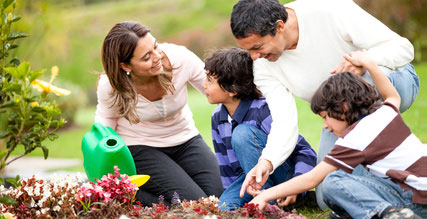Seasonal and environmental allergies affect up to 20% of people and can have a significant impact on quality of life, sleep, and overall health. Allergies and associated symptoms can change with the seasons, and each season has unique allergens that can trigger these symptoms.

Spring
In the spring season, tree pollen is the primary allergen. Most trees start to release pollen in early February, but some species of trees such as cedar trees actually start pollenating as early as late December or early January in some parts of the country. This means that spring allergy symptoms such as itchy eyes, runny nose, and nasal congestion can start before patients even consider that spring might be approaching. If you get a “springtime cold” each year, you may have spring allergies instead! Tree pollen season usually ends in April or May.

Summer
Summer is grass pollen season. Grass usually starts to pollenate in May, and can continue to release allergen through August and sometimes early September. Many people think that grass allergy presents with itchy skin or hives when sitting in grass, which can be the case, but for most patients who are grass-allergic, itchy eyes, sneezing, and congestion are more common. Summer is also a season where many people spend more time exercising outdoors- if you notice that you have a harder time breathing while exercising in the summer, or if certain activities like gardening or mowing your lawn trigger itchy eyes, coughing, or sneezing, it may be a good idea to see an allergist.

Autumn/Fall
In the late summer and autumn, common weeds such as ragweed, tumbleweed, and sage release their pollens, and this will continue usually until the first frost, which can occur as late as mid-December. In addition to weed pollen, molds can be more prevalent in the fall, particularly in areas where larger collections of fallen leaves have a chance to gather. Autumn is also a common season for many viruses such as influenza and enterovirus, and for patients with fall allergies and asthma, this can lead to a higher risk of asthma exacerbations. Fall is a perfect time to check in with your allergy and asthma specialist to make sure that your symptoms are well controlled in an effort to prevent exacerbations!

Winter
Most people don’t think about “seasonal” allergies in the winter season when snow is frequent and temperatures are cold. However, during the winter, we typically keep our doors and windows closed as well as our animals inside, and people with pet allergies can see an increase in their symptoms. In addition, turning on the furnace or running a wood stove to heat your home can contribute to drier air in the winter, which can create irritation in your sinuses and airways, as well as lead to eczema flares.


